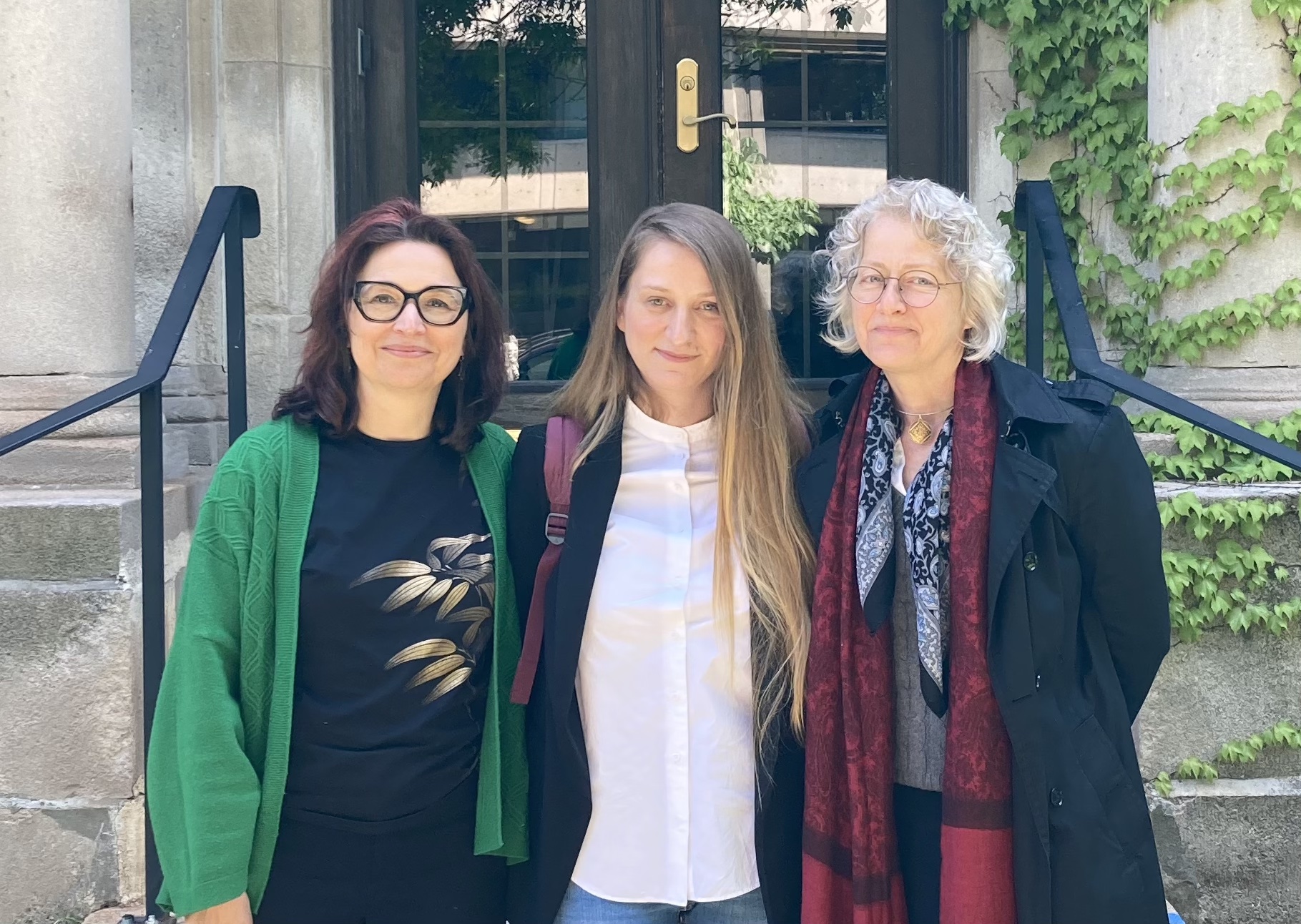Magdalena Yuksel defended her doctoral dissertation, "Middle Eastern Refugees in Europe: The Polarization of Affect through Digital Remediations of Migration as Crisis", on Thursday, May 25, 2023. The committee consisted of Angelica Fenner (supervisor), Alberto Zambenedetti, Sara Saljoughi, Milena Methodieva, exam chair Mohamad Tavakoli-Targhi, and external examiner Sandra Ponzanesi, Utrecht University.
We asked Magda about her work.
My dissertation attends to the manufactured Islamophobic, multidirectional traumatic and sympathetic humanitarian responses that have accompanied representations of the migratory “crisis,” exploring in particular, the affective reactions of European audiences towards war refugees fleeing the Middle East over the last decade. Finally, the dissertation reveals the manner in which the neoliberal European political sphere has utilized media and migration discourse as an extension of ideological polarization.
I want to thank everyone at the CSI—what a fun and enlightening journey it has been! I especially want to thank my supervisor, Prof. Angelica Fenner, and my committee members, Prof. Sara Saljoughi and Prof. Alberto Zambenedetti.
Her supervisor, Angelica Fenner, had this to say about Magda's thesis:
Magda’s doctoral thesis implements theories of affect and the network to explain the contagion-like spread of polarized public sentiment in northern and eastern European countries in response to the last decade of population migrations from destabilized areas of the Middle East, especially Syria. Both quantitative and qualitative analyses inform her elucidation of contrasting political responses and affective attachments, which break down into hate versus love, racism and anti-muslim sentiment versus humanitarian sympathy and empathy. These have proliferated in social media, newsfeeds, feature films and documentary films produced in the four countries under study: Poland, Hungary, the Netherlands, and Germany. Magda wields a nuanced command over a century’s worth of theories of crowd psychology, contagion, and virality (from Le Bon to Tarde, to Sampson), as well as of affect, particularly the emotion-oriented writings of Ahmed and Berlant. She also draws on Rothberg’s concept of multidirectional memory, acknowledging the disparate hauntologies - colonial, imperial and holocaust-related – also informing populist, humanitarian, and government-level encounters with war refugees’ trauma. The project closes with visual media produced by Syrians whose first-person perspectives more often assume the force of testimonial, surpassing any solicitation of sympathy or pity, to hail the spectator as empathetic witness to the degradation of everyday life but also to solidarity under duress, and indeed, survival.
Magda persevered with this project not only throughout the pandemic years, but more recently amid news reportage of the recent earthquake in Turkey, a source of concern also for several CSI students from the region. Her years of dedicated writing and research are most clearly evidenced in the clear, precise language implemented to articulate the travel of essentially immaterial phenomena. In the Final Oral Exam, Magda fielded questions and elaborated her responses with aplomb, resulting in lively and engaging discussion with external examiner Dr. Sandra Ponzanesi, internal Dr. Milena Methodiva, committee members Prof. Sara Saljoughi and Prof. Alberto Zambenedetti, supervisor Prof. Angelica Fenner, and Chair Prof. Mohamad Tavakoli-Targhi. Congratulations, Dr. Yuksel!
Congratulations, Dr. Yuksel!



